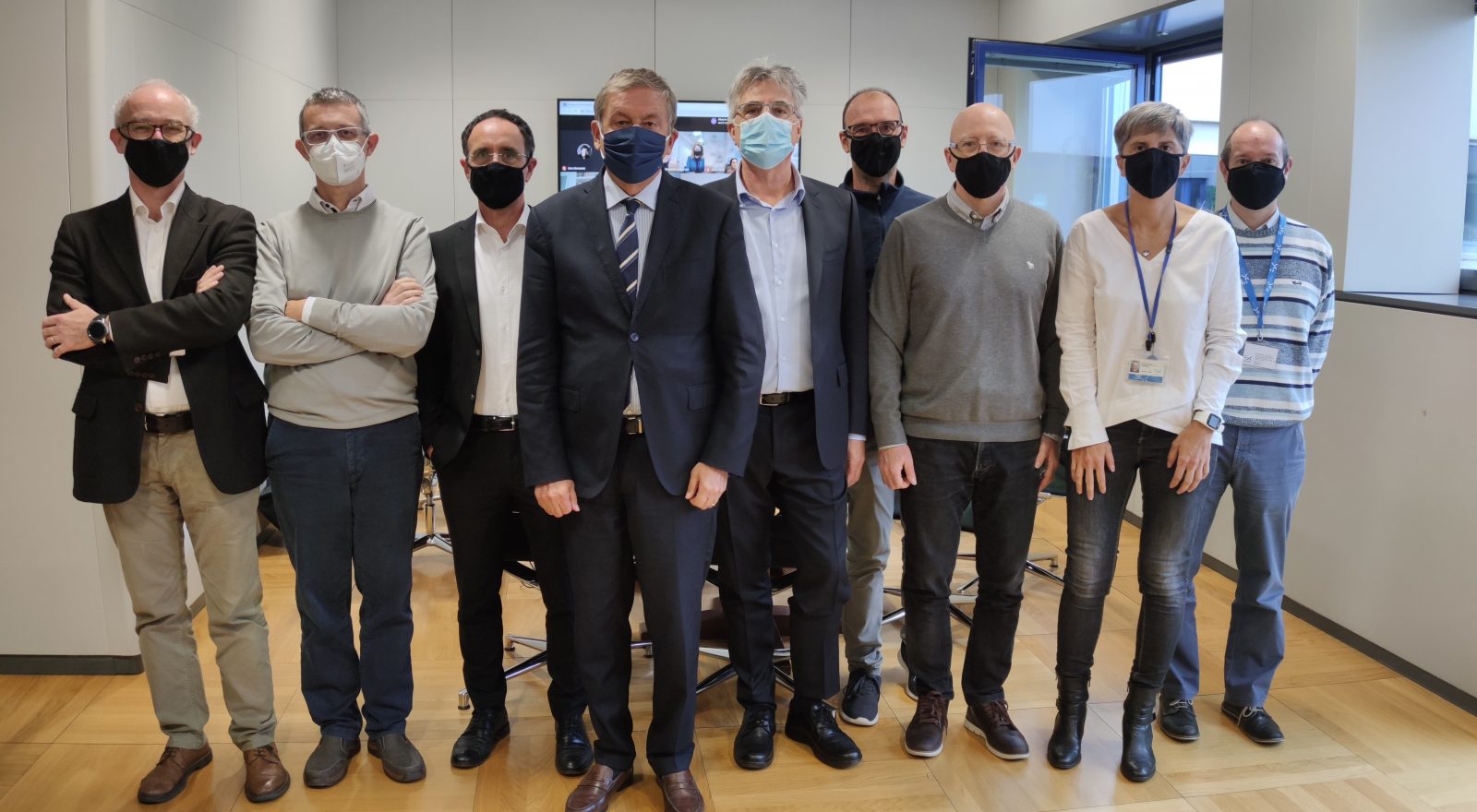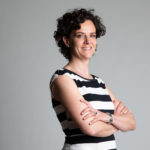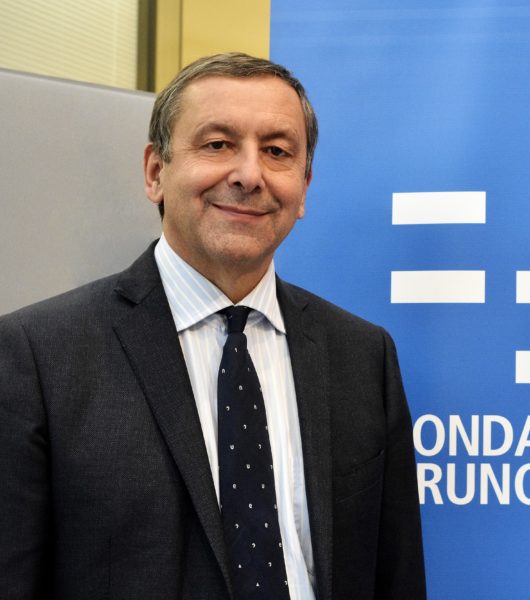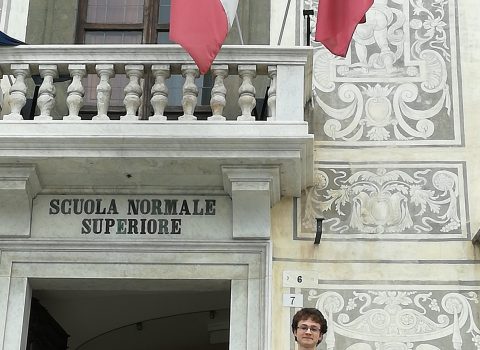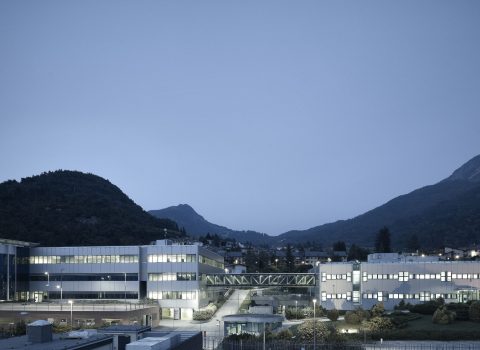
FBK has chosen who will lead the new Research Centers
Cimatti will lead the digital industry center, Crema the one for sustainable energy, Pistore the one for the digital society and Ranise the one for cybersecurity. As for health, there will be three new centers: health and wellness services will be entrusted to Forti, health emergencies to Merler and artificial intelligence for health and well-being to Ghidini.
In today’s Board of Administration meeting, Fondazione Bruno Kessler has appointed the directors of the new research centers, which replace the Center for Information and Communication Technologies. They are Alessandro Cimatti for the center dedicated to the digital industry, Luigi Crema for sustainable energy, Marco Pistore for digital society and Silvio Ranise for digital security. Given the unusual nature of healthcare, there will be three new centers dedicated to it: one for health and wellness services entrusted to Stefano Forti, one dedicated to health emergencies, to Stefano Merler and one on artificial intelligence for health and well-being, to Chiara Ghidini.
The new research centers – that will strongly focus on the future strategy of Trentino-based research and on the missions of the new Horizon Europe European framework program – represent one of the most evident innovations of a new FBK organizational and operating model, in an effort to continuously improve in a context of radical paradigm shift.
“With this step, the Foundation enables the effective implementation of the strategies set out in the so-called “Rovereto Charter”, an essential point of reference for the evolution of the whole Trentino research, innovation and development system in relation to the evolution of global scenarios – President Francesco Profumo stressed. The distinctive elements of the new FBK model have been identified in the domain reorganization of the science and technology hub, in the selection of scientific leadership more oriented towards people management, in the confirmation as Secretary General of Eng. Andrea Simoni and the definition of a Management Committee, in strengthening the marketing strategy and business development functions”.
The new Centers and Directors
Digital industry – Director Alessandro Cimatti

With an H-Index of 60 and a long list of publications and industrial collaborations with top multinational companies, Alessandro Cimatti will lead the center dedicated to the development of industrial ICT tools and platforms aimed at optimizing the work of human resources, productivity, the efficiency of highly automated systems and work environments. Special attention will be paid to the design and production of innovative services that can leverage on Data Science skills to make production systems more efficient, autonomous, responsive, intelligent and flexible.
Sustainable energy – Director Luigi Crema
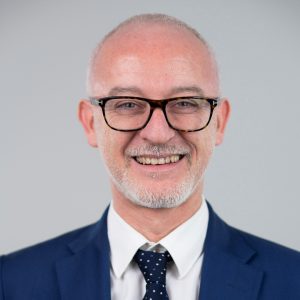
The center for simulation, modeling and testing of renewable energy production, storage and distribution systems will count on the guidance of Luigi Crema, who boasts national and international credibility especially in the field of hydrogen and flow batteries thanks to a wide network of collaborations confirmed byhis recent appointment as board member of Hydrogen Europe Research, an association that brings together 70 European research institutions, dedicated to energy development in the hydrogen field.
Digital society – Director Marco Pistore
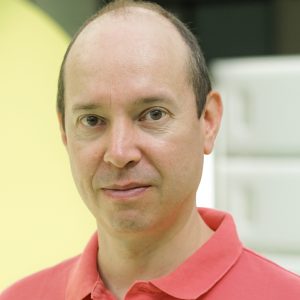
Marco Pistore boasts extensive experience in research and innovation with the public administration and companies in particular thanks to co-design experiences, the creation of co-innovation labs and countless European projects won. The center will focus on the development and testing of integrated methodological and technological platforms for smart cities & communities, using ICT as a key technology of transformation to improve the quality of life, safety and social inclusion in smart local communities.
Cybersecurity – Director Silvio Ranise
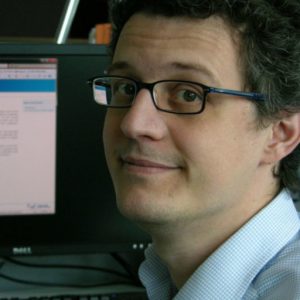
With the appointment of Silvio Ranise, FBK researcher and full professor at the University of Trento, a strong synergy with the university on strategic research topics such as cybersecurity has been strengthened. Ranise has also conducted numerous projects with leading companies and institutions. The Center will deal with the development of highly innovative cybersecurity solutions capable of reducing threats and improving integration with people, focusing on two main research areas: digital identity and quality of virtual services.
As for health and well-being, there are three complementary but distinct domains: the health emergency especially associated with the global phenomena of epidemics and the current Covid-19 pandemic; the radical transformation of medical-health research and investigation determined by new technologies and artificial intelligence; health services and equal opportunities for care and well-being in local areas.
Emergencies and pandemics – Director Stefano Merler
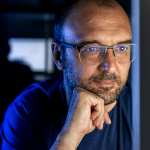
The direction of the first center will be entrusted to Stefano Merler, an internationally renowned mathematical epidemiologist who has been studying the transmission of infectious diseases (Sars, Mers, Ebola in West Africa, Zika, Ebola) since 1994 and is one of the main scholars active in the current Covid-19 crisis.
Health and wellness services – Director Stefano Forti
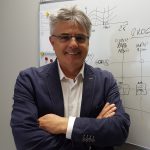
The second center will instead address health services for the local area and will be led by Stefano Forti, scientific manager of numerous digital health projects and co-author of various publications in international scientific journals, FBK contact for the Executive Committee of the Competence Center on digital health TrentinoSalute4.0.
Artificial intelligence for health and well-being – Director Chiara Ghidini

The third center, which will focus on artificial intelligence and new technologies for health and well-being, will be led by Chiara Ghidini, FBK senior researcher, board member of AI*IA (Italian Association of Artificial Intelligence) as well as of the committees of the main international conferences on AI. She is also involved in numerous international research projects and industrial projects in collaboration with Trentino-based companies.
As of the call closing date, July 31, FBK had received 97 applications from candidates (44 eligible), 36 of which from non-Italian candidates. 20 candidates were female, while the average age of the candidates was 44.
The candidates were evaluated by a dedicated acommittee set up by the Board of Administration composed of FBK President Francesco Profumo, FBK Secretary General, Andrea Simoni, Simona Heidempergher (FBK Board of Administration member and Dutch family office CEO), Carla Fabiana Chiasserini (FBK Scientific Committee and Politecnico Torino faculty), Gianni Camisa (expert member for management), Marco Gori (expert member for science), Carla Strumendo (assigned by the Department of Economic Development, Research andLabor of the Autonomous Province of Trento).
The selection process could also count on innovative ways of involving the Foundation’s staff. In particular, through the “FBK Ideas” initiative, staff had the chance to discuss on an online platform in a participatory way some proposals that were reported to the governance, first of all the one that asked for the interviews of the 14 shortlisted candidates to be made available for streaming to all staff.
